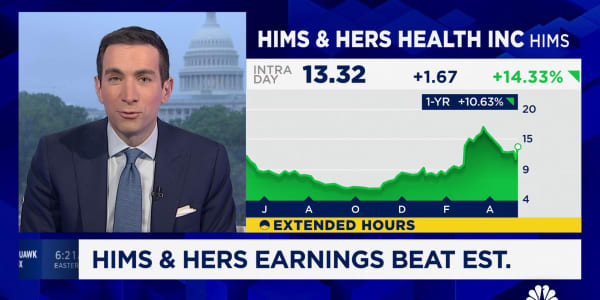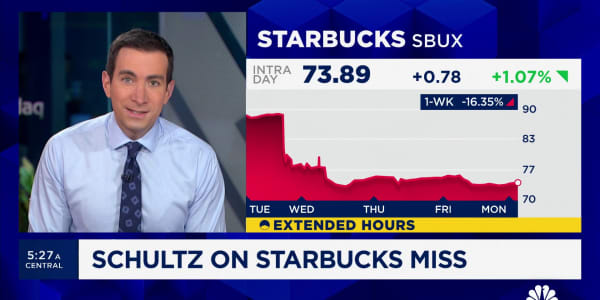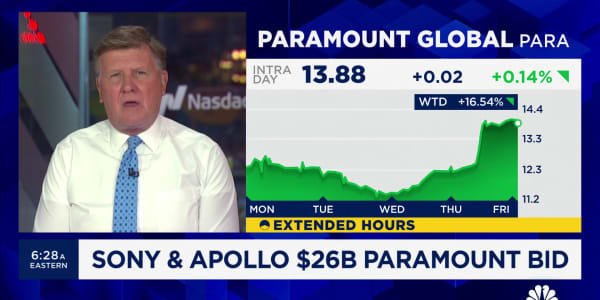Recapping the day's news and newsmakers through the lens of CNBC.
Notes:
For many, it's gospel: High tax rates drive the wealthy away. And from time to time we get news of one celebrity or another decamping a high-tax state for a cheaper one. But the high-tax areas are also creating and attracting wealthy folk, so what's the bottom line?
A new study by UBS and Wealth-X shows that some of the highest-tax states create the most multimillionaires. California, with the highest state tax rate, 13.3 percent for those making $1 million or more a year, was the biggest creator of multimillionaires. Massachusetts had the highest percentage growth, at 35.2 percent. New York City, with a combined city and state rate over 12 percent, added more multimillionaires than any other city.
Quotes:
"Broader economic factors seem to matter as much or morethan taxes for millionaire counts—like economic growth, business environment, the role of finance in the economy and the type of local industry."
—CNBC's Robert Frank
Hedge funds: buy and hold = poor returns
Notes:
Quick, what's the first thing that comes to mind with hedge funds? If you said they turn on a dime as conditions change, moving into hot assets and out of cold ones, you share a common view. But you'd be wrong.
A Goldman Sachs report says that flipping investments is the exception, not the rule. On average, just 28 percent of a hedge fund's portfolio turns over in a given year. Even more surprising: over a 12-year period, turnover averaged just 35 percent.
Hedge fund managers obviously think their picks have legs. How's that approach work? Well, this year the average equity-focused hedge fund returned 10 percent through October 31. That sounds okay until you consider that the S&P 500 returned 26 percent.
Quotes:
"Less than 5 percent of hedge funds outperformed the [S&P 500] index as many were hurt by their short positions and hedges."
—CNBC's Lawrence Delevingne
For retailers, sale items are still profitable
Notes:
When you see a half-off item at a holiday sale, you might think it is selling at a loss, probably to lure shoppers who might buy something else, too. In fact, the store may make a tidy profit even on deep, deep discounts, because markups on merchandise like clothing can be huge, often 70 to 80 percent. A $300 dress may actually cost the retailer only $60. So a 50 percent discount would still provide a $90 profit.
A smart shopper can gamble that the price will be slashed even more if holiday sales are soft
Quotes:
"Retailers adhere to specific formulas set six to nine months in advance, and each discount is closely mapped out to lure consumers into the stores during Black Friday weekend and beyond."
—CNBC's Stephanie Landsman
Online shopping casualty: impulse buys
Notes:
Online shopping is great if you're busy, hate crowds or are wobbly on your feet. But when shopping online it's not as likely you'll spot an unexpected item and buy it, and that can hurt sales of certain products that tend to be impulse buys.
In Britain, about 13 percent of people buy most or all of their groceries online. But their spending accounts for only 5 percent of grocery sales. Analysts believe that's because online shoppers are less likely to stray from their lists.
At highest risk are companies that sell items in checkout lanes: candymakers like Mondelez International, Mars and Nestlé, and magazine publishers like Time Warner and Hearst. Firms that sell impulse items are experimenting with ads that pop up when online shoppers check out, but many shoppers just click on past.
Quotes:
"I always just press 'next, next, next, next' without even reading them, deliberately, because I don't want to be tempted."
—Elizabeth Clark, a Liverpool teacher, on why she ignores ads for impulse-items at online checkout
Bitcoin values keep on keepin' on
Notes:
Bitcoin, the virtual currency that got a welcome reception from U.S. regulators last week, traded above $1,000 for the first time Wednesday, a gain of nearly 7,700 percent for the year. It is in heavy demand in China, which has shown no signs of restricting the currency.
Unlike ordinary currency, bitcoin is not issued by a central bank but is computer-generated. While not yet in widespread use, it has enjoyed growing acceptance for retail transactions, and it can be readily converted into ordinary currency through numerous exchanges.
Quotes:
"If either [the U.S. or Chinese] government were going to ban the currency outright, they would have made the decision now rather than later as it would really serve no purpose to delay beyond fueling speculation. So overly heavy-handed government regulation looks unlikely."
—Zennon Kapron, managing director of KapronAsiam.
—By Jeff Brown, Special to CNBC.com




